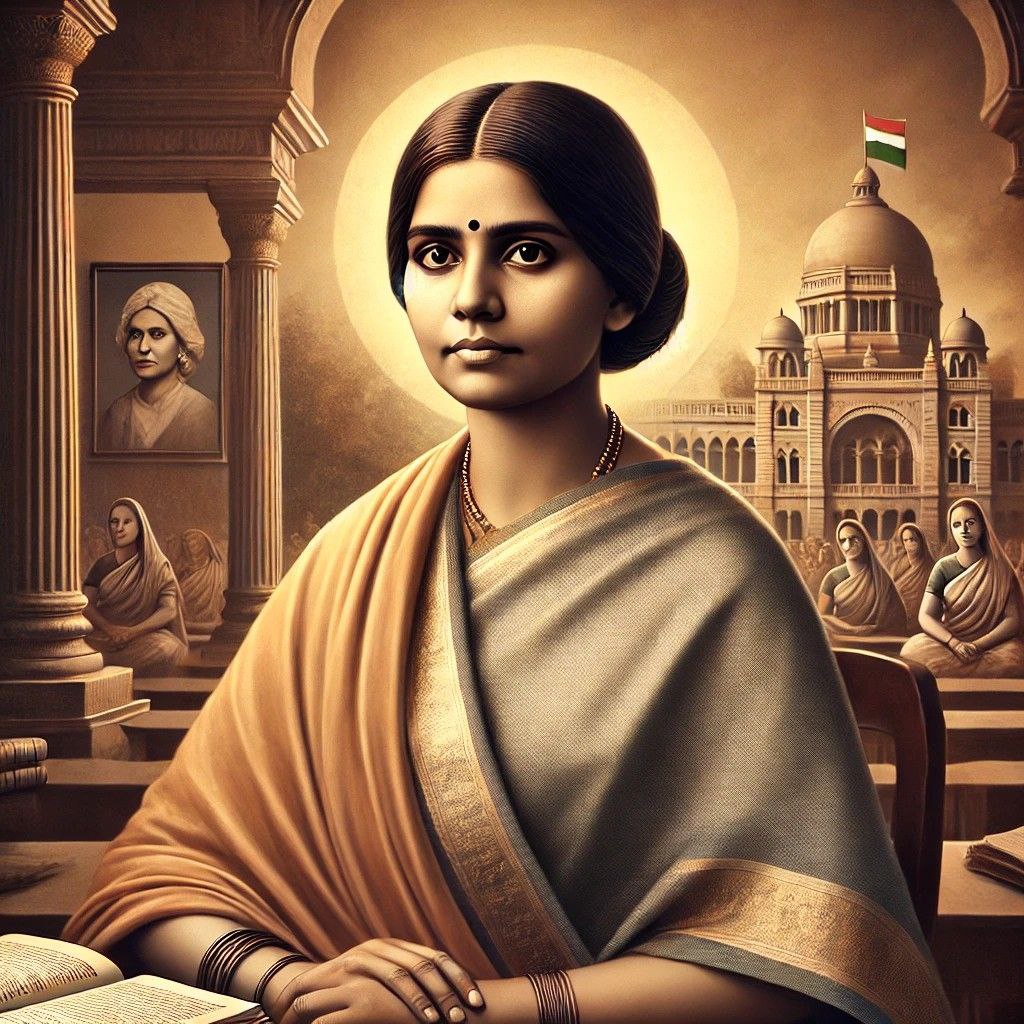Pandita Ramabai (1858–1922) was a pioneering Indian social reformer, scholar, and activist who championed women’s rights and education during British colonial rule. Born into a progressive Brahmin family, she defied societal norms by mastering Sanskrit and religious scriptures, which was unusual for women at the time. Her profound knowledge earned her the title Saraswati (Goddess of Learning).
Ramabai was deeply influenced by her personal experiences of caste and gender discrimination, which shaped her lifelong advocacy for social justice. She traveled extensively in India, England, and the United States, gaining insights into different cultures and educational systems.
Ramabai is best known for founding the Mukti Mission in Pune, a refuge for destitute women and widows, offering them shelter, vocational training, and education. She also authored The High-Caste Hindu Woman, a scathing critique of patriarchy and caste-based oppression, highlighting the plight of Indian women.
A convert to Christianity, Ramabai integrated her faith with her reform work, striving to uplift marginalized women while promoting cultural and intellectual advancement. Her legacy continues to inspire movements for gender equality and social reform in India.
Below is an analysis of her work related to gender and her critique of orthodoxy:
Gender
Pandita Ramabai was a relentless advocate for women’s rights and empowerment, especially at a time when Indian society was deeply patriarchal.
- Focus on Women’s Education:
- Believed that education was essential for women’s emancipation.
- Founded the Arya Mahila Samaj in Pune, aiming to promote women’s education and oppose social evils like child marriage.
- Established the Sharada Sadan (1889) in Mumbai, a residential school for widows, which emphasized vocational training and self-reliance.
- Critique of Patriarchy:
- Opposed gender-based restrictions and societal norms that subjugated women.
- Highlighted the plight of widows and advocated for their rights, emphasizing their need for education and dignity.
- Rejected traditional roles assigned to women, advocating for their right to make independent choices.
- Advocacy for Widow Rights:
- Pandita Ramabai herself faced societal discrimination as a widow, which fueled her efforts to reform widowhood practices.
- Spoke out against forced celibacy for widows and encouraged them to lead meaningful lives.
- Intersection of Gender and Religion:
- Critiqued how religious orthodoxy justified gender inequality.
- Emphasized that women’s oppression in India was rooted in both religious practices and societal norms.
Critique of Orthodoxy
Pandita Ramabai was a vocal critic of religious orthodoxy, particularly in Hinduism, which she believed perpetuated social evils and inequalities.
- Challenges to Brahmanical Patriarchy:
- Despite being born into a high-caste Brahmin family, she rejected the orthodox framework that confined women to secondary roles.
- Criticized the Manusmriti and other Hindu texts that reinforced women’s subjugation.
- Conversion to Christianity:
- In 1883, she converted to Christianity after being influenced by the egalitarian principles of the religion, though she remained critical of Western missionary attitudes.
- Her conversion was both a spiritual and political act, signifying her rejection of oppressive Hindu orthodoxy.
- Used her Christian faith as a foundation for social service, establishing institutions that welcomed women of all castes and religions.
- Advocacy for Rationality and Reform:
- Pandita Ramabai’s critique of orthodoxy extended to the blind adherence to rituals and superstitions in all religions.
- Emphasized the need for rationality, ethical conduct, and compassion over dogma.
- Caste Critique:
- Condemned the caste system and its dehumanizing effects, particularly on women of lower castes.
- Her institutions, like Mukti Mission, worked for marginalized women across caste lines, promoting inclusivity.
Legacy
Pandita Ramabai’s work laid the foundation for gender equality and social reform in India. Her critique of orthodoxy and patriarchy, coupled with her emphasis on education and self-reliance, made her one of the most influential reformers of her time. Her efforts continue to inspire movements for women’s empowerment and social justice in modern India.

